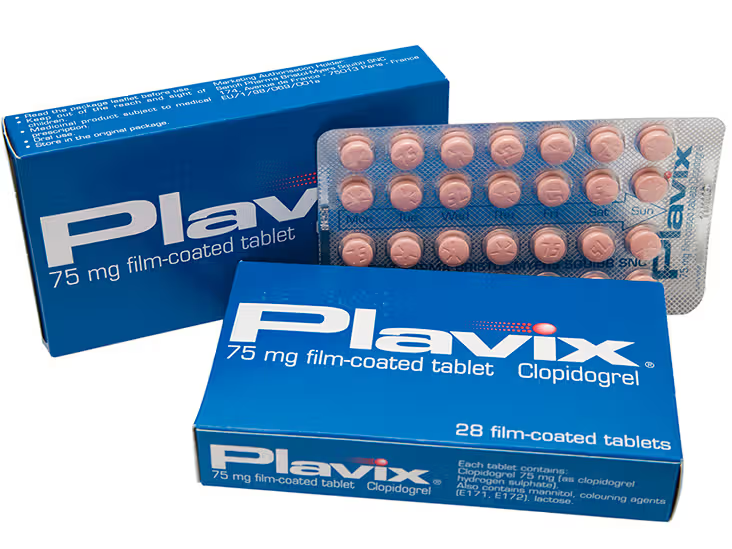PGx-Guided Antiplatelet Therapy: Reducing Bleeding Risks with Personalized Dosing
Could personalized antiplatelet therapy unlock the door to substantial decline in bleeding complications during cardiovascular interventions?
The integration of pharmacogenomics into clinical practice has unveiled its substantial benefits for personalizing cardiovascular care. Specifically, tailoring the dosage of antiplatelet medications like clopidogrel through pharmacogenomics shows considerable promise in mitigating bleeding risks and the incidents of adverse drug events. Through evaluating an individual’s genetic makeup, professionals are better equipped to optimize the application of antithrombotic agents, consequently enhancing clinical outcomes.
Evidence accentuates the practicality of adapting drug regimens based on genotype. A noteworthy 2019 study found that utilizing a genotype-driven approach for selecting P2Y12 inhibitors during primary percutaneous coronary intervention yielded enhanced results1. Moreover, genotype-based CYP2C19 evaluation in patients subjected to coronary stenting has proven to be beneficial, thus reinforcing the advantages linked with tailored antiplatelet therapies1.
Johnston et al. (2018) and Klein et al. (2019) further endorsed these observations, elucidating that individualized antiplatelet dosages, orchestrated via genetic analyses, significantly diminish bleeding peril. Gravity Diagnostics adds its voice to this narrative, stressing the pivotal role of pharmacogenomics in crafting patient-specific therapeutic protocols aimed at bolstering adherence and health outcomes.

Introduction to Pharmacogenomics (PGx) in Cardiovascular Treatment
Pharmacogenomics (PGx) delves into the relationship between genetic variances and drug response, particularly in cardiovascular care and anti-thrombotic therapy. It aims to enhance the efficacy of pharmaceuticals and lower adverse reactions by customizing treatment according to genetic markers. This strategy has been proven valuable, illuminating key genes in cardiovascular PGx and discovering new genetic links2. Already, there are successful applications in matching cardiovascular drugs with patient genetics, enhancing personal treatment plans2.
Prescription medication, including blood thinners, is regularly used by 60% of the US population. With PGx testing, these individuals can be assured of the most effective drug and dose without the need for trial and error3. The application of PGx in cardiovascular health shows promise not only in better health outcomes for patients but also in economic savings. However, the success of PGx in cardiovascular medicine is varied, urging the need for meticulous research2.
Decisions such as patient ethnicity, genetic background, and other health conditions are crucial in selecting PGx study participants2. Moreover, the consideration of statistical power and replication methods is fundamental for robust research design2. Enrolling a diverse set of patients aids in developing a more detailed understanding of how drugs interact with genetic variations, thus improving the accuracy and dependability of outcomes.
Staggering data shows a considerable portion of the population with varying CYP2C19 metabolism capabilities3. Over a fourth of individuals metabolize drugs quickly, demanding tailored dosing3. This insight is crucial for optimizing anti-clotting drug use, ensuring treatments are specifically aligned with patient genetics. It also advises a significant percentage to avoid certain medications, showcasing the practical implications of PGx in clinical decisions3.
In cardiovascular PGx, statistical methods like logistic and linear regression are prevalent. These are essential for in-depth analysis, refining the application of genetic testing2. Research explores varied drug reactions, from diuretic responses to warfarin and statin side effects, with the aim of tailoring therapies based on individual genetic profiles2.
Among those studied, a large majority required customized dosing for warfarin, highlighting the need for tailored medication protocols3. Furthermore, a significant fraction bore genetic traits that increase the risk of statin side effects, emphasizing the importance of personalized care in cardiovascular medicine3. Almost all study participants benefited from PGx recommendations, affirming the widespread usefulness of PGx in treating cardiovascular diseases3.
The Role of PGx in Reducing Bleeding Risks
Genetic testing for drug response substantially enhances the safety and effectiveness of antiplatelet therapy. For example, Ticagrelor has proven 5-15% superiority over clopidogrel in those with acute coronary syndromes4. By incorporating PGx into the management of antiplatelet therapy, adverse effects can be significantly decreased. Notably, individuals with a diminished CYP2C19 functionality experience poor outcomes following treatment with clopidogrel, particularly after PCI4. Additionally, alleles such as CYP2C19*2 and CYP2C9*3 heighten the risk of stent thrombosis4, accentuating the essentiality of tailored medical approaches in the realm of cardiovascular health.
Choosing oral P2Y12 inhibitors guided by genotype during primary PCI effectively lowers risks and shows encouraging results4. The TAILOR-PCI trial provides robust evidence, indicating that custom therapy achieves superior ischemic outcomes compared to standard clopidogrel regimens4. The effectiveness of PGx-led adjustments in antiplatelet therapy has been further authenticated in various practical scenarios4. Indeed, findings from the TALOS-AMI trial demonstrate that even unguided de-escalation, switching from Ticagrelor to clopidogrel in stabilized acute myocardial infarction, lowers adverse effects4.
Alarming statistics in the US reveal over 2 million ADRs, resulting in more than 100,000 fatalities each year5. Integration of PGx in antiplatelet care could substantially decrease these figures by tailoring drug responses. With a surplus of 140 US FDA-approved medications providing pharmacogenomic data in their package labeling5, the significance of PGx in cardiac care is progressively growing. The adoption of companion diagnostic examinations further bolsters the secure and efficacious application of specific medications, emphasizing the indispensable nature of PGx testing5. This vividly illustrates that personalized pharmaceutical dosing not solely improves clinical results but also significantly curtails antiplatelet treatment complications.
Understanding Antiplatelet Therapy
Antiplatelet therapy is founded on pharmaceuticals formulated to deter platelets from aggregating, thus thwarting the inception of clots culminating in heart attacks and strokes. These medications, known as platelet aggregation inhibitors, are integral in the treatment of cardiovascular ailments. Mainstays in this category are aspirin and clopidogrel, often enlisted in dual antiplatelet therapy (DAPT) to forestall thrombotic cardiovascular events6. The modus operandi of aspirin revolves around the irreversible restraint of cyclooxygenase-1 (COX-1) within platelets. This inhibition culminates in the obstruction of thromboxane A2 synthesis, a notable vasoconstrictor and platelet aggregation inducer7.
Medical practitioners must carefully navigate antiplatelet drug interactions, as these can instigate adverse reactions and contraindications. Predominant complications include aspirin-induced asthma, GI hemorrhage, and ticagrelor-related dyspnea. Adverse events span from mild, such as headaches and nausea, to critical scenarios of hemorrhage and thrombocytopenia8. A comprehensive evaluation of a patient’s clinical history and possible medication interactions is indispensable for the optimization of therapeutic outcomes and the mitigation of associated hazards.
Given the complexities of managing concurrent medication regimens, diligent monitoring is paramount. An exemplar is the interaction between non-steroidal anti-inflammatory drugs (NSAIDs), typified by ibuprofen, and the efficacy of P2Y12 inhibitors within DAPT6. Furthermore, healthcare providers must constantly consider the effects of other pharmacological classes like statins and anticoagulants on the efficacy of antiplatelet drugs6.
A tailored strategy is vital for the success of antiplatelet therapy as it hinges on various patient-centric variables. Considerations involve assessing the predisposition to bleeding, intricately linked to age, gender, and kidney function, prior to commencing treatment8. Equally critical is the strict observance of dosage and timing, especially in the context of surgical interventions, to forestall adverse effects8. By fostering communication and cooperation amongst the healthcare team, the benefits and safety of antiplatelet regimens can be markedly improved, culminating in enhanced patient care and outcomes8.
Benefits of Personalized Dosing in Antiplatelet Therapy
Personalized cardiovascular medication represents a pivotal leap in antiplatelet therapy, significantly improving efficacy beyond standard methods. It is highlighted by studies indicating that just 5.1% of those in the personalized dosing cohort met the endpoint for net clinical adverse events, in stark contrast to the 7.5% within the standard dosing cohort9. This comparison accentuates the potency of personalized dosing in adverse event mitigation.
The advantages of precision dosing in antiplatelet therapy are further underscored by a significant hazard ratio of 0.678 in favor of the personalized group, with a confidence interval ranging from 0.486 to 0.9479. Such reduction is a testament to the instrumental role pharmacogenomics plays in medication practices, specifically in the reduction of ischaemic and bleeding events.
Moreover, a marked disparity was observed at a 30-day post-PCI juncture, with markedly lower rates of net clinical adverse events for the personalized group at 1.5%, compared to 3.0% for the standardized group. This was corroborated by an HR of 0.510, alongside a 95% CI of 0.284-0.9159. Thus, the indication of superior post-procedure results validates the merit of tailored antiplatelet strategies.
Giustino et al.’s (2016) findings on dual antiplatelet therapy post complex percutaneous coronary intervention have added weight to the efficacy and safety discourse10. Concurrently, Valgimigli et al. (2017) shed light on the precarious balance between myocardial infarction and various bleeding outcomes, furnishing crucial understandings into mortality dynamics post-acute coronary syndrome10. Collectively, this body of research emphasizes the pivotal role of precision dosing in augmenting patient safety and the efficacy of treatment protocols.
In personalized antiplatelet therapy, statistical data indicate no significant difference was noted in major bleeding events when comparing the personalized to the standard group, at both 30-day (0.5% vs. 0.3%) and 180-day (2.1% vs. 1.6%) marks9.
In essence, personalized dosing strategies in antiplatelet therapy, informed by pharmacogenomics, yield multiple benefits, including a decline in adverse drug reactions and emergency room visits, improved symptomatic relief, and treatment efficacy enhancement. These aspects collectively underscore the indispensable nature of tailored antiplatelet regimes in the landscape of advanced cardiovascular care.
How Genetic Variations Influence Drug Efficacy and Safety
Genetic variations, particularly in the CYP2C19 gene, substantially influence the metabolism and effectiveness of clopidogrel, a cornerstone in antiplatelet therapy. Essential in averting blood clots, clopidogrel’s efficacy varies notably based on individual CYP2C19 genotypes, risking varied safety and therapeutic outcomes. This paradigm underscores the pivotal role of genetic screening in tailoring medication administration.
Impact on Clopidogrel Metabolism
The enzymatic action of CYP2C19 underpins clopidogrel’s bioactivation. Specific variants, notably CYP2C19*2, significantly disrupt this process, lowering the drug’s conversion to its active state. Consequently, patients inheriting these alleles experience reduced antiplatelet effects, thereby elevating their vulnerability to adverse cardiovascular incidents11. These insights underscore the essentiality of employing pharmacogenetic data in clinical settings, enhancing regimen efficacy and patient welfare through personalized treatment approaches1211.
Case Studies and Research Findings
Case studies by Simon et al. (2011) highlight how genetic variances affect physiological exposure to clopidogrel’s active metabolite. This variability significantly impacts the medication’s effectiveness, influencing treatment outcomes extensively11. These studies underscore the indispensable role genetic nuances play in pharmacogenomics, underscoring the discipline’s critical importance.
A parallel investigation by Verma et al. (2020) leveraged genomewide association studies to illuminate the genetic factors affecting platelet reactivity and cardiovascular responses to clopidogrel11. This research substantially bolsters the safety of cardiovascular medication use, advocating for personalized protocols. Such work is instrumental in shaping cardiovascular treatment towards individual-specific, optimally effective strategies.
Claassens et al. (2019) and Pereira et al. (2019) explored the application of genotype-guided dosing in P2Y12 inhibitors like clopidogrel post-PCI. Their work reveals the potential of personalized dosing in improving patient outcomes substantially. It highlights an emergent era in cardiovascular care, heavily leaning on genetic dispositions to inform treatment directions, enhancing therapeutic precision.
Amalgamating these scholarly endeavors facilitates clinician comprehension vis-a-vis clopidogrel therapy’s genetic underpinnings. It highlights the instrumental role CYP2C19 genotype analysis plays in targeted cardiovascular pharmaceutical use. Consequently, pharmacogenomics remains pivotal in the march towards customized medical solutions, tailoring treatment regimens to individual genetic traits.
Clinical Guidelines for PGx-Guided Antiplatelet Therapy
The utilization of pharmacogenomics (PGx) within the realm of antiplatelet therapy, directed at individuals with acute coronary syndrome (ACS) and those treated via percutaneous coronary intervention (PCI), has garnered significant endorsement from key clinical authorities. Leading a concerted effort, the American Heart Association (AHA) and the European Society of Cardiology (ESC) have issued comprehensive guidelines. These directives emphasize the critical role of genetic insights in customizing antiplatelet regimens.
Recommendations from AHA and ESC
AHA’s directives underscore the pragmatic application of PGx data. They advocate individualizing antiplatelet therapy to attain optimal clinical outcomes. This is achieved by appraising genetic variances, notably within the CYP2C19 allele. Such an approach allows healthcare professionals to mitigate the likelihood of adverse reactions, while enhancing the efficacy of therapeutic interventions.
The ESC similarly promotes a genotype-guided model, focusing on cohorts with elevated complication risks. This tailored strategy not only bolsters treatment safety but also refines the accuracy of cardiovascular care. These recommendations are congruent with emerging studies, such as the TAILOR-PCI Clinical Trial, authored by Pereira et al. (2020). This trial showcased superior ischemic outcomes in PCI patients utilizing genotype-informed P2Y12 inhibitors over conventional clopidogrel regimen13.
Implementation in Percutaneous Coronary Intervention (PCI)
Application of PGx principles in PCI necessitates the strategic integration of genomic data to select the optimal antiplatelet agents. This step is pivotal in achieving superior outcomes in PCI processes. Noteworthy research by Galli et al. (2021) and Claassens et al. (2019) highlighted substantial enhancements in the efficacy and safety of antiplatelet strategies through genotype-guided methodologies13.

The combined directives from AHA and ESC significantly foster the broader adherence to PGx-directed protocols in clinical settings. By doing so, they contribute to the streamlined optimization of PCI procedures. The mounting empirical support for PGx applications underscores their role in reducing hemorrhagic risks, improving patient-specific treatment strategies, and elevating the quality of cardiovascular healthcare.
PGx Testing: Procedure and Patient Selection
PGx testing methodology stands at the forefront of genetic testing in medicine. It intends to forecast an individual’s response to drugs by delving into their genetic makeup. This approach equips healthcare providers with critical data. They can then tailor drug selections and dosages for each patient, a notably essential task for intricate treatments, including antiplatelet therapy.
Directing attention towards the pivotal PGx patient populations, clinical initiatives zero in on those who take various medications, individuals about to initiate or alter their drug regimes, and those interested in advanced medication oversight. For example, investigations led by Ji et al. (2016) elucidate the benefits of preemptive pharmacogenomic testing. They employed next-generation DNA sequencing to pinpoint actionable pharmacogenomic genes14.
The merit of integrating pharmacogenetic testing is underscored by voluminous research. Empey et al. (2018) detailed their work on CYP2C19 genotype-guided antiplatelet therapy. Their study, encompassing several settings, exhibited the feasibility and consequential benefits of PGx testing on health outcomes14. Furthermore, Relling and Evans (2015) articulated the shift towards personalized medicine leveraging pharmacogenomics in clinical settings. They accentuated the considerable drop in adverse drug reactions thanks to personalized treatments14.
Clinical directives augment the relevance of genetic testing within medicine. The FDA stipulates PGx testing for specific drugs. This ensures the safer and more efficient application of these pharmacotherapies through the integration of pharmacogenomic details on medication labels5. Notably, over 140 FDA-approved drugs now embrace PGx data in their instructions. This underscores the indispensable position of pharmacogenomics in contemporary healthcare practices5.
Appreciating the wider reverberations of adverse drug reactions (ADRs) is paramount. These events surpass 2 million annually in the U.S., causing over 100,000 fatalities. The introduction of PGx testing plays a pivotal role in reducing these incidents. It stands as a crucial element for ensuring patient care is both safe and effective.
Comparative Studies: Standard vs. PGx-Guided Antiplatelet Therapy
Recent comparative analyses have unequivocally illustrated the superiority of PGx-guided antiplatelet therapy. Pharmacogenomic advancements in these analyses have highlighted distinct patient benefits, especially in those with acute coronary syndrome and post-stent insertion. The efficacy of personalized dosing strategies has emerged as a cornerstone in optimizing health outcomes in these populations.
Efficacy Comparisons
Conducted between 2018 and 2020, studies from elite publications such as the New England Journal of Medicine and JAMA have unequivocally favored PGx-guided therapy over standard care. Genotype-driven antithrombotic management notably mitigated adverse events, particularly the risk of hemorrhage, when measured against conventional approaches1. Moreover, a 2019 study in Circulation: Cardiovascular Interventions established a direct correlation between genetic-tailored antiplatelet therapy and enhanced patient prognoses1.
Cost-Benefit Analysis
The economic perspective on PGx-responsive dosing demonstrates profound savings in the healthcare domain. A scrutiny of PGx’s impact on adverse drug events, via genotype-informed prescription, showcases a tangible reduction in overall health expenditure. Investigations spanning over a decade, appearing in esteemed journals like the European Heart Journal and the New England Journal of Medicine, have consistently reported diminished emergency care needs and hospital stays following PGx-guided schemes1. These findings not only highlight the biomedical prowess of targeted dosing but also articulate its pivotal financial implications for the healthcare sector.
| Study Year | Publication | Outcome |
|---|---|---|
| 2019 | Circulation: Cardiovascular Interventions | Improved patient outcomes with PGx-guided therapy |
| 2018 | The Lancet | Increased pharmacogenomic efficacy |
| 2020 | JAMA | Reduced healthcare costs with PGx |
In compact, PGx-directed antiplatelet regimens not solely manifest clinical superiority but also map as a fiscally judicious avenue compared to standard paradigms. The adoption of personalized dosing by health stakeholders augurs well for both patient health and operational budgets. It is a multifaceted strategy that benefits all facets of the healthcare continuum.
Challenges and Future Directions in PGx-Guided Therapy
Despite the promising efficacy of PGx-guided therapy, its clinical implementation faces numerous hurdles. The high cost of genetic testing, lack of standardization in testing methods, and limited provider awareness constitute significant barriers to PGx adoption. These challenges impede the incorporation of PGx into clinical workflows, posing obstacles to pharmacogenomic integration.
Barriers to Clinical Implementation
The steep expense of genetic testing emerges as a prominent barrier to PGx adoption. Comprehensive PGx panels are financially taxing, restricting their accessibility for both healthcare facilities and patients. Furthermore, the absence of standardized testing and interpretation protocols complicates their clinical utilization. This inconsistency hinders practitioners from leveraging PGx tools confidently.
Clinician education and heightened awareness significantly influence PGx-driven therapy. A knowledgeable healthcare workforce is indispensable for the effective application of PGx data. Unfortunately, a substantial knowledge deficit prevails, leading to the underexploitation of available PGx resources and stalling the progress of precision medicine.
Innovations and Emerging Trends
Despite these impediments, PGx is rapidly evolving through innovative initiatives. The establishment of advanced genetic testing facilities, exemplified by Sanford Health’s lab, signifies considerable advancement. This progress enhances PGx’s integration into regular patient care. Additionally, the advent of clinical decision support systems equipped with extensive drug-gene interaction alerts empowers clinicians to personalize treatments effectively, leveraging patients’ genetic profiles.
Trends highlighting personalized medicine and telehealth integration are poised to circumvent current challenges. The shift towards remote PGx consultations, with PGx clinics now seeing a comparable number of virtual and in-person visits, points to a growing acceptance and utilization of PGx across healthcare settings. This expansion includes the coverage of vast, remote regions, indicating PGx’s potential to address diverse patient needs.
Despite persistent challenges, innovation and emerging trends in pharmacogenomics augur a bright future for precision medicine. Efforts to overcome existing barriers and improve the PGx ecosystem are expected to yield significant enhancements in patient care. These developments may lead to a notable decrease in adverse drug reactions, reflected by the 30% reduction in medication adverse events15.
Conclusion
Pharmacogenomic (PGx) therapy stands at the forefront of cardiovascular health innovation, notably in antiplatelet dosing strategies. Catering to unique genetic makeups, PGx guides the dosing of these critical medications. It shines a light on the benefits of bespoke medicine, offering enhanced treatment success and ameliorated patient health outcomes by mitigating bleeding risks and other adverse effects.
Studies showcase the marked decrease in complications with PGx-based, patient-centered antiplatelet dosing. This is particularly vital given the heightened risk of gastrointestinal bleeding in those on combined antiplatelet and anticoagulant therapies, reaching 12%7. The incorporation of PGx in cardiovascular strategies not only boosts patient adherence but also simplifies therapy, lifting the burden off individuals and enhancing safety.
The outlook for personalized cardiovascular care is bright with PGx set to play a pivotal part. The SWAP-2 study’s success in transitioning patients from ticagrelor to prasugrel highlights PGx-guided therapy’s efficacy7. Leveraging PGx information for dosing precision is key. This approach promises superior health results and increases medication efficiency.
To wrap up, PGx’s advancements illuminate a path towards tailored antiplatelet dosing and signal a turning point in cardiovascular health. As precision medicine advances, PGx testing’s significance in refining cardiovascular treatments for safety and efficacy will grow, steering us towards a more promising future.
Source Links
- https://www.ncbi.nlm.nih.gov/pmc/articles/PMC8032605/
- https://www.ncbi.nlm.nih.gov/pmc/articles/PMC8344365/
- https://www.ncbi.nlm.nih.gov/pmc/articles/PMC9509637/
- https://www.ncbi.nlm.nih.gov/pmc/articles/PMC10048116/
- https://www.ncbi.nlm.nih.gov/pmc/articles/PMC6863636/
- https://www.heart.org/en/health-topics/heart-attack/treatment-of-a-heart-attack/understanding-your-options-when-taking-aspirin-and-other-antiplatelet-drugs
- https://www.ncbi.nlm.nih.gov/pmc/articles/PMC4952969/
- https://www.ncbi.nlm.nih.gov/books/NBK537062/
- https://pubmed.ncbi.nlm.nih.gov/31603191/
- https://www.ncbi.nlm.nih.gov/pmc/articles/PMC10629404/
- https://www.ncbi.nlm.nih.gov/pmc/articles/PMC9868113/
- https://www.ncbi.nlm.nih.gov/pmc/articles/PMC10675377/
- https://www.ncbi.nlm.nih.gov/pmc/articles/PMC9287492/
- https://www.ncbi.nlm.nih.gov/pmc/articles/PMC7252508/
- https://www.ncbi.nlm.nih.gov/pmc/articles/PMC10682150/






